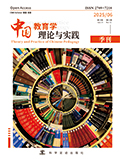

博士生教育高质量发展是中国社会高质量发展的必然要求, 也是相关利益主体的重要诉求。研究选取中国31个省域为实证对象, 以在校博士生数、博士生导师数、R&D经费投入强度、世界一流大学数、知名博士培养人数、每百万人口博士学位授予人数、R&D人员博士毕业人数7项指标为核心指标, 利用主成分分析法、变异系数法确定权重, 构建了中国省域博士生教育发展指数。该指数将中国31个省域博士生教育发展状态划分为博士生教育发展Ⅰ型、Ⅱ型、Ⅲ型三类。博士生教育发展Ⅰ型以北京为代表, 其发展遥遥领先于中国其他省域。博士生教育发展Ⅱ型, 以上海、江苏、湖北、广东4省为代表, 属于中国博士生教育发展的“第二梯队”。博士生教育发展Ⅲ型, 以其余26个省域为代表。研究发现, 中国省域博士生教育发展不仅与省域经济发展状况密切相关, 而且呈现一定的区域共性特征, 同时在一定程度上受到国家宏观政策的影响。研究建议, 一是加强相邻省域博士生教育战略合作, 形成区域博士生教育发展优势, 二是制定灵活多样的博士生教育管理政策, 鼓励博士生教育管理变革与创新。
The high-quality development of doctoral education is an inevitable requirement for the high-quality development of Chinese society, and an important demand of relevant stakeholders. The study selects 31 provinces in China as the empirical objects and constructs an index for the development of doctoral education in China’s provinces by using seven indicators as core indicators: the number of doctoral students in school, the number of doctoral supervisors, the intensity of R&D funding, the number of world-class universities, the number of well-known doctoral students who were trained, the number of doctoral degrees awarded per million population, and the number of doctoral graduates from R&D personnel, and determines the weights by using principal component analysis and coefficient of variation method. The index divides the development status of doctoral education in 31 provinces in China into three types, i. e. , Type I, Type II, and Type III of doctoral education development. The type I of doctoral education development is represented by Beijing whose development is far ahead of other provinces. Type II, represented by Shanghai, Jiangsu, Hubei, and Guangdong, is the "second echelon" of doctoral education development in China. The remaining 26 provinces are represented by Type III of doctoral education development. The study found that the provincial doctoral education development in China is not only closely related to the development of the provincial economy, but also shows certain regional common features, and is affected by the national macro-policy to a certain extent. The research suggests that, firstly, strengthen the strategic cooperation of doctoral education in neighboring provinces to form. regional advantages in the development of doctoral education, and secondly, formulate flexible and diverse doctoral education management policies to encourage reform. and innovation in doctoral education management.